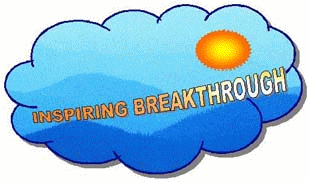

    |
||||||||||||
 |
Inspiring Breakthrough |
|||||||||||
Multiple IntelligencesBy incorporating into the learning experience a mixture of activities that meet the 8 different styles of learning ensures maximum effectiveness, input and retention. There are 8 learning styles or intelligences as researched and published by Howard Gardner: Musical, Kinaesthetic, Mathematical / Logical, Visual / Spatial, Linguistic, Interpersonal, Intrapersonal and Naturalist. In the following pages you can learn more about each intelligence and suggestions on how to develop these further. Musical IntelligenceMusic is a much more powerful learning tool than people tend to appreciate and it is therefore important for all of us to incorporate the art of music into our lives to a certain degree. Musical intelligence is more than merely ability with music per se – it is much wider, encompassing an aptitude for rhythm and patterns of sound. There are certain individuals who have a superb natural ability to be creative with any rhyme, rhythm or sound. There are also cultures, particularly African cultures, where this intelligence is in evidence to a greater extent than in other cultures. Howard Gardener, in his book ‘Frames of Mind’ describes the core features of Musical Intelligence as sensitivity to pitch, melody, rhythm, timbre and the emotional aspects of sounds. Such individuals can easily be identified because they are seen to possess some or all of the following functional skills:-
Most of us have at least some musical intellect. Indeed we can dance to a beat, or learn something using a jingle or a rhyme. We all know words to songs that we have not consciously made the effort to learn, which just goes to show how powerful music can be in enhancing the memory process. Develop Your Musical Intelligence by:Musical intelligence DOES incorporate music – but is wider. It encompasses rhythm and rhyme such as that found in poetry. Most children find it easy to learn rhythmically – which is why nursery rhymes and children’s songs are so popular – indeed, some nursery rhymes have been passed down through generations for centuries. For example, children may still sing ‘ring-a-ring-a roses’ – from the 17th century European plagues. Musical intelligence
is also amplified in cultures without written language as the meter of
a story makes it easier to remember and repeat fro many generations –
often word for word.
To further develop your learning styles we strongly recommend the following:
Howard Gardners brilliant conception of individual competence is changing the face of education today. In the ten years since the publication of his seminal Frames of Mind , thousands of educators, parents, and researchers have explored the practical implications of Multiple Intelligences (MI) theory the powerful notion that there are separate human capacities, ranging from musical intelligence to the intelligence involved in understanding oneself. Multiple Intelligences: The Theory in Practice brings together previously published and original work by Gardner and his colleagues at Project Zero.
The author demonstrates that there exist many human "intelligences", common to all cultures - each with its own pattern of development and brain activity, and each different in kind from the others. These potentials include linguistic, musical and logical/mathematical capacities, as well as spatial and bodily intelligences, and the ability to arrive at an emotional and mental sense of self and other people. Rather than reducing an individual's potential to a single score on an IQ test, it is the fostering and education of all these intelligences that should be our concern.
Other Inspiring Breakthrough Multiple Intelligences within this section; Musical Individual
Performance Improvement OUR MISSIONInspiring Breakthrough aim to create behavioural change, within organisations, through inspiring coaching and tailored development solutions. By empowering individual breakthrough from perceived potential to the achievement of their true potential. Click here to ask any questions about how we can help you improve your business. |
||||||||||||
|
Copyright ©
Inspiring Breakthrough, 2003-5
|
||||||||||||